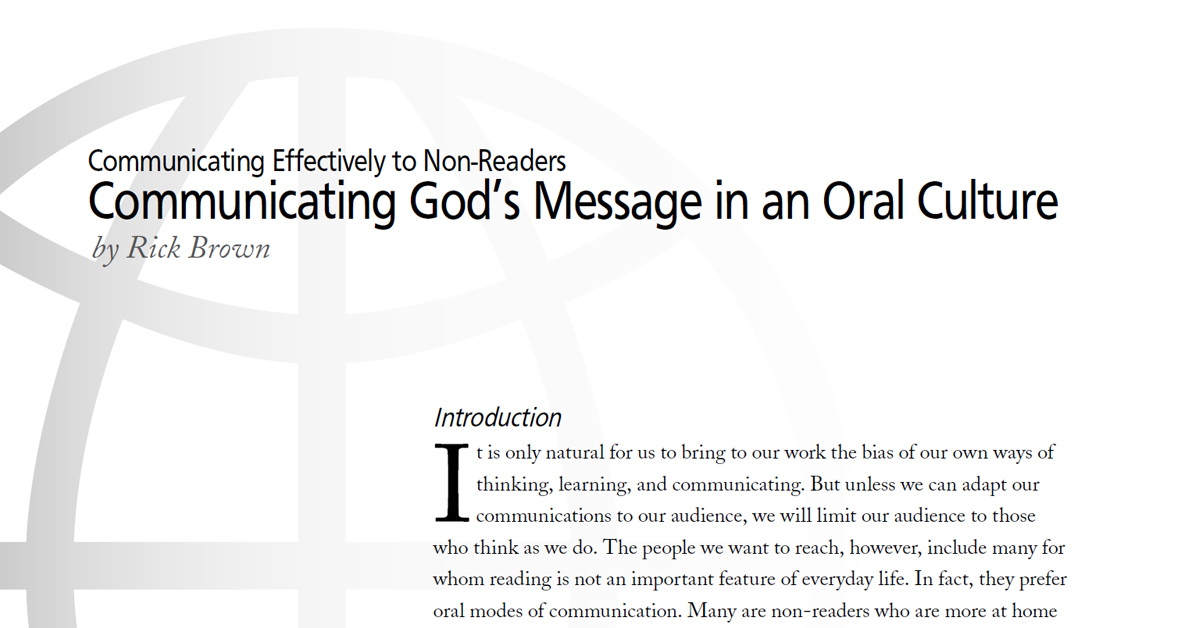
It is only natural for us to bring to our work the bias of our own ways of thinking, learning, and communicating. But unless we can adapt our communications to our audience, we will limit our audience to those who think as we do. The people we want to reach, however, include many for whom reading is not an important feature of everyday life. In fact, they prefer oral modes of communication.
Many people are non-readers who are more at home with oral communication methods. Research and experiments over the last two decades have shown that oral communicators learn best when these methods are used. In this paper Rick Brown looks at some of the principles that need to be understood and their implications for communicating God’s Word.



